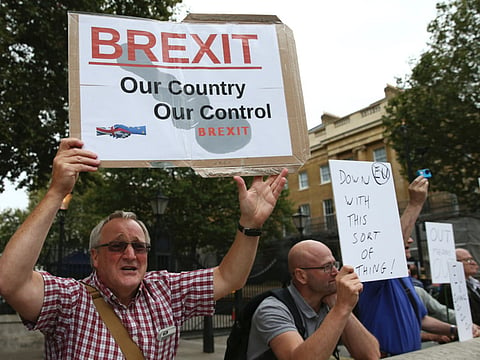Is now the time to end the referendum?
Misinformation and badly-behaved campaigners marred the UK’s crucial Brexit vote

As the United Kingdom woke up on June 24 to the news that the country had chosen to leave the European Union (EU), droves of Britons hurriedly Googled the phrase ‘What is the EU’ — seemingly unaware of what it meant to have had a say in the nation’s most significant vote in a generation.
This extraordinary lack of information was one of the key aspects seized upon by the Electoral Reform Society (ERS) in its report into the referendum, which was published last week. The document, titled ‘It’s Good To Talk: Doing Referendums Differently After The EU Vote’, was critical of the lack of unbiased information available to voters despite the widespread general interest that led to a turnout of 72.2 per cent.
A week before the referendum, only a third of those polled said they were well or very well-informed on the issues at the heart of the debate, while 28 per cent admitted they had a poor or very poor grasp of the subject. “There was no shortage of interest in the referendum, but there was a huge shortage of people feeling they were well-informed about the issues,” report author Will Brett wrote.
Campaigners on both sides of the debate had free rein to spout skewed or dubious statistics to back up their stance, with no regulatory authority having the power to slap them down when they overstepped the mark. It was scandalous that key claims — like the Remain side’s insistence that households would be £4,300 (Dh21,216) a year worse off outside the EU and Vote Leave’s indignation at the £350 million supposedly sent to the EU every week — were not independently verified. These numbers were emblazoned on campaign buses, regularly repeated in speeches and in TV debates and flogged as the key reason for voting ‘in’ or ‘out’ — only to be abandoned the morning after the vote with no repercussions.
The focus on personalities and negative campaigning by both sides also drew the ERS’ ire. “Negativity plays an important role in fostering the culture of mistrust, which was so in evidence throughout the EU referendum campaign,” the report said. “Too often, negative campaigning can descend into personality-based mudslinging and, when that happens, voters are short-changed and deprived of the really powerful, issue-based conversation they deserve.”
The report went so far as to condemn the campaigns for creating “an atmosphere that few would consider [as] an example of good democracy in action”.
So the ERS has called for an inquiry into the EU referendum and has made a series of recommendations, including establishing a minimum six-month regulated campaign period; the publication of a rulebook to govern future referendums; an independent website with a minimum data-set; an official body to intervene when overtly misleading information is disseminated; and encouraging public broadcasters to consider more deliberative — rather than combative — formats when covering the topics.
But maybe that doesn’t go far enough, perhaps Britons should also be considering abandoning the idea of referendums altogether. It is worth questioning why the government believed that the average person on the street should make a decision of this magnitude on such a hugely complicated issue. Why didn’t the Conservatives carry out comprehensive research themselves, consult the relevant experts and make a decision for the good of Britain based on the mandate they had won at the general elections just 12 months earlier?
It seems foolhardy to give the public the final say on such a complex subject when the campaign leaders often boil all the arguments down to a single, emotionally-charged issue such as immigration or sovereignty.
There is already talk of more referendums — on the question of Scottish independence (again) and on the terms of Brexit — but there should be a pause before Britain continues with the growing trend of holding plebiscites on a regular basis. It should consider carefully before it gives up more of parliament’s sovereignty to these votes having got into such a tangle about the exact same issue with regard to losing power to Brussels.
But what is clear is that the farcical campaigning seen in the build-up to the EU referendum must never be repeated. The UK’s decision-makers should learn the lessons, take on board the ERS recommendations and — if another referendum is ever required — ensure that the campaigns are run in a more professional manner and amidst a watertight legal framework. Maybe then Britons wouldn’t have to rely on Google to find out what they’ve just voted for.
Martin Downer is a freelance journalist based in the UK.


